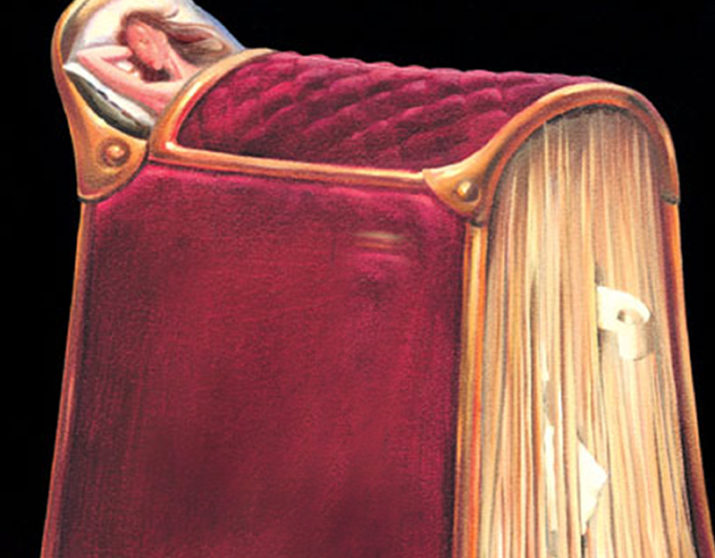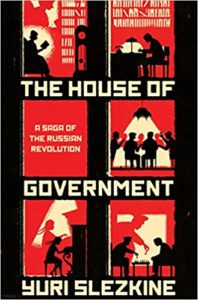
 The Doubles
The Doubles
by Scott Esposito
Publisher: Civil Coping Mechanisms
Recommended by Katrine Øgaard Jensen
In The Doubles, Scott Esposito intriguingly explores fourteen works of world cinema that have come to shape him. Like his experimental part-memoir, part-reading list The Surrender (Anomalous Press, 2016), The Doubles is a genre-bending tale of self-identity and the transformative powers of art. A four-part work composed of inventive retellings of films–from classic cinema like Kubrick’s A Clockwork Orange to von Trier’s mischievous documentary The Five Obstructions to art-house filmmaker Kieślowski’s The Double Life of Veronique, as well as popular contemporary indie cinema–the essays in this insightful and intimate hybrid cover twenty years of Esposito’s life, from 1996 to 2016. With its pioneering storytelling, The Doubles is a must-read for lovers of film and criticism; a work of art that will surely come to shape anyone who studies it.
 European Union Enlargement and Integration Capacity
European Union Enlargement and Integration Capacity
by Tanja Börzel, Antoaneta L. Dimitrova, Frank Schimmelfennig
Publisher: Routledge
Recommended by Daniela Irrera
The EU enlargement capacity is far from being an out-dated topic. Despite the political and social crisis the EU is facing and the skepticism which is nurtured in the public opinion by populist movements, the integration process advances. An assessment of the most important enlargement phase, which has concerned Eastern European countries, can tell more about such capacity.
The book edited by Tanja Börzel, Antoaneta Dimitrova and Frank Schimmelfennig demonstrates, through a sophisticated theoretical framework, that the enlargement has widely benefited both national institutions in Eastern countries and EU institutions. Not only has it not damaged or decreased the resilience of integration, it has rather generated a set of practices and lessons learned which can be used again. Integration never dies.
 Les relations villes/campagne: Histoire d’une question politique et scientifique
Les relations villes/campagne: Histoire d’une question politique et scientifique
by Nicole Mathieu
Publisher: L’Harmattan
Recommended by Hélène B. Ducros
This book constitutes a welcome retrospective on the scholarship of historian Nicole Mathieu, who has devoted much of her career to disentangling the relationship between nature, city, and countryside by questioning the changes taking place in rural spaces. As this selection of her own texts shows, she has also examined the influence of Europe in shaping the rural and the urban, as well as the ways in which these notions have been apprehended in territorial policies and research over time. Representing a synthesis of Mathieu’s work, this volume provides not only a state of the field, but also an exposé of its evolution since the 1970s. By conveying the rural-urban dichotomy as a contextual construction, the book highlights that the representation and transformation of the rural-urban relationship has been impacted by specific moments in political, agricultural, and social history and that it has more often been understood from the perspective of the urban rather than the reverse. The book is an invitation to consider the evolution of the interconnectedness and new mobilities between countryside and cities in the 21st century at a time of profound environmental challenges in the face of acute ecological constraints and unequal risk. Although centered on the example of France, Mathieu’s work engages more widely with the role of Europe in debates over rural sustainability and the diversity of rural dwelling in post-industrial and post-agrarian societies, while also triggering a renewed conceptualization of the rural-urban bond as an embodiment of dynamic and uneven processes in today’s globalized world.
 The Experiment: Georgia’s Forgotten Revolution 1918-1921
The Experiment: Georgia’s Forgotten Revolution 1918-1921
by Eric Lee
Publisher: Zed Books
Recommended by Samantha Lomb
The Experiment is about the Georgian Social Democratic/ Menshevik Revolution that took place in 1918. As the world celebrates the centenary of the Bolshevik Revolution, Lee uses this book to explore what happened in Georgia, where the Social Democrats /Menshviks, led by Noe Zhordania remained committed to a democratic and inclusive revolution as a counterpoint to the Bolshevik notions of a strict, disciplined party and a limited, undemocratic but participatory system of government. He notes that Zhordiania and the other Georgian Mensheviks had cut their teeth in 1902-1906 in the Gurian republic, a small break-away region in Georgia, where peasant revolt had turned into democratic local government, until it was crushed by Tsarist forces. The lessons learned in Guria remained crucial for the Georgian Social Democrats, who learned to appreciate the peasants as a revolutionary class who demanded an equal seat at the table, as well as principles such as universal suffrage for men and women and the importance of involving local people in policy making, particularly to solve Georgia’s pressing agrarian question. When the Bolsheviks seized power in 1918, the Georgian Social Democrats reluctantly broke away from Russia and sought to navigate the charged political waters, trying to stave off invasion from Turkey and Denikin’s White forces with alliances with first Germany and then Britain. They also tried to apply classic Marxist principles, creating not socialism but a bourgeois industrial revolution and a corresponding democratic regime, which was elected by secret ballot and universal suffrage to run the new, tiny nation. This new democratically elected Menshvik government tried to solve issues of pressing concern, carrying out land reform and encouraging judicial reform and encouraging industrial development, while trying to maintain the sovereignty and territorial integrity of their new nation. Eventually, due to Georgia’s size and geopolitical location, this revolution failed, but Lee provides a fascinating account of what the country briefly looked like under Menshvik rule and how this compared to the regime established by Georgia’s most famous son, Stalin.
 The House of Government: A Saga of the Russian Revolution
The House of Government: A Saga of the Russian Revolution
by Yuri Slezkine
Publisher: Princeton University Press
Recommended by Louie Dean Valencia-García
Yuri Slezkine’s The House of Government: A Saga of the Russian Revolution is the story of Europe’s largest residential building, known as the House of Government, completed in 1931 on what essentially was swamp land. The building, a unique commixture of bourgeois luxuries and collectivism, was located on the Moscow River, across from the Kremlin; it included 505 furnished apartments, a library, sport facilities, a cinema, child-care, a grocery store, salon, and numerous public spaces. The tenants were maids and governesses, commissars and commanders, Marxist scholars, managers, writers, even members of Joseph Stalin’s own family. Slezkine’s 1104-page tome is a rigorous scholarly work that reads like a Bulgakov’s The Master and Margarita—full of twists and turns, vignettes and stories that shed light onto everyday life in the aftermath of the Bolshevik Revolution from the perspective of “Old Bolsheviks.” The Great Purges of the 1930s and 40s feature prominently into this story and tragedy—nearly 800 of the approximately 2,655 residents were evicted, shot or sent to prison.
The author does not quite go into a Braudelian longue durée-style history, but he certainly digs a trench deep into the roughly twenty years that are the focus of this history. While such detailed histories often might intimidate even the most assiduous reader, Slezkine creates a very readable history by using memoirs, letters, government archives, photographs, poetry, and interviews. More than simply telling the history of the building, or the lives of everyday Bolsheviks, which alone would be worthwhile, Slezkine makes the historiographical argument that Bolshevism was indeed a millenarian religion—and shows this through his description of the lives that passed through the House of Government. Reading about the likes of Soviet poet, actor, and artist Vladimir Mayakovsky, and numerous others, one clearly sees the connections between Bolshevism and millenarianism. Leaving no corner of the House unexplored, later sections of the book reveal the shift in mentalité from millenarian Bolshevism to disillusionment for the younger generation.




